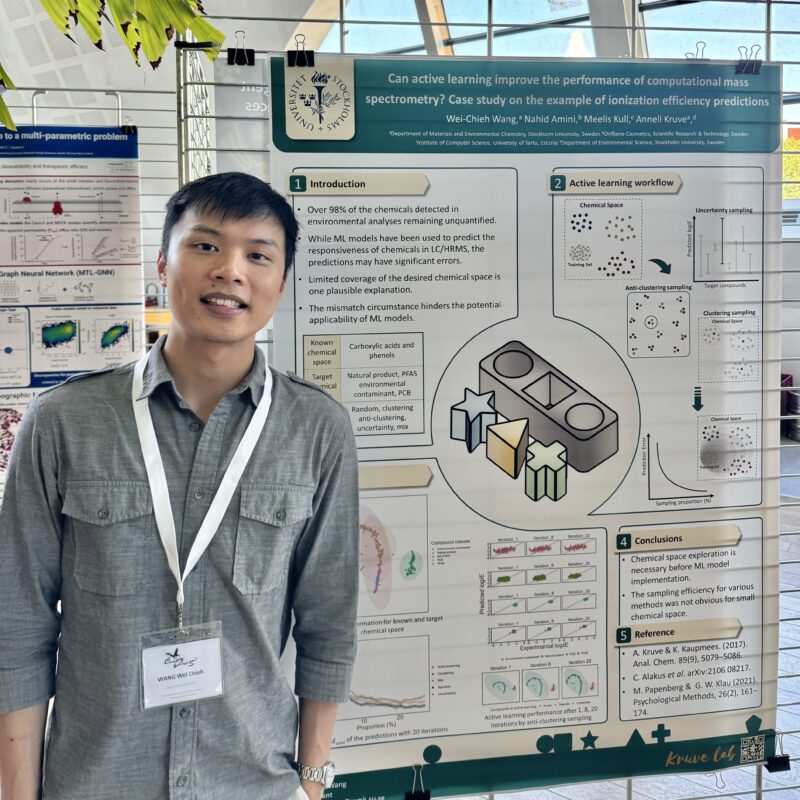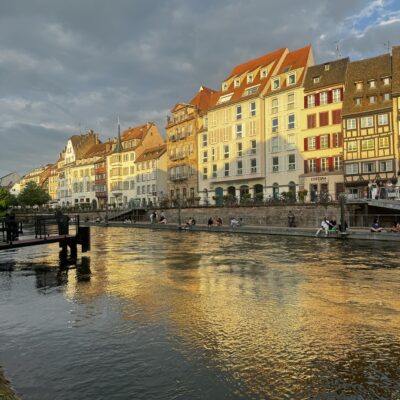I was pleased to participate in the 9th Strasbourg Summer School in Chemoinformatics in Strasbourg, France, from June 24th to June 28th. It was an honor to be offered the opportunity to present my research, which currently focuses on evaluating the applicability of machine learning active learning workflow in environmental analytical chemistry.
Facing vastly different challenges, other researchers widely broadened my horizons. From synthesizability prediction to protein docking simulation, from autonomous laboratories to chemical space exploration, it was a fascinating experience to learn edge-cutting studies and network with talented researchers.
During the conference, I realized many advanced techniques in other fields have not been widely employed in LC-HRMS analysis. For instance, using transformers to reduce the complexity of analytical data or handling data in a more reproducible way to maintain the performance of a machine learning model. It was thrilling to learn the new views of the field.
Furthermore, there are many questions to be answered: the long-lasting question regarding the informativeness of the SMILES-based and graph-based representations, the way to understand the uncertainty of the machine model predictions, etc.
I must say I am excited to devote myself to discovering the possibility of machine learning and artificial intelligence in analytical chemistry.




